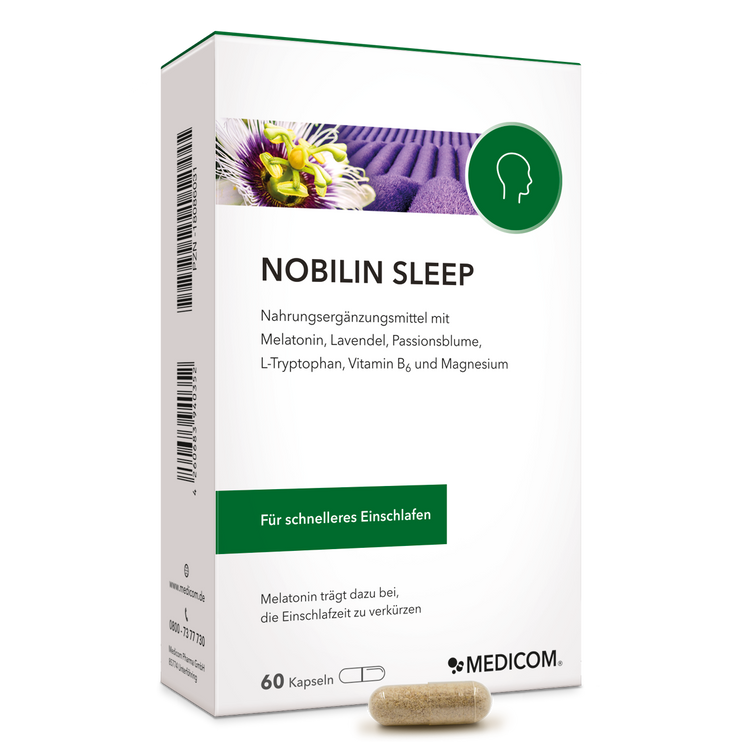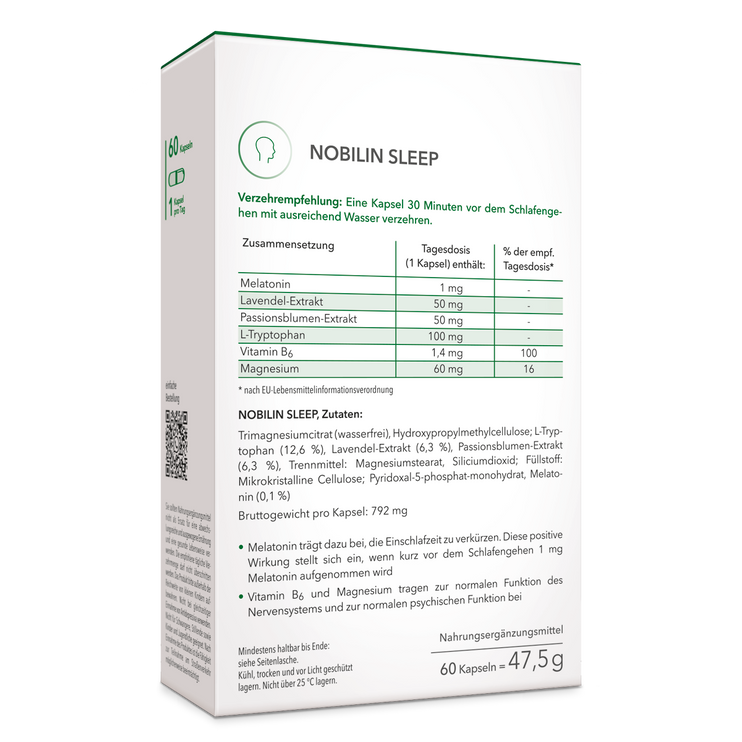L-tryptophan: the precursor to happiness
-
L-tryptophanis an essential amino acid that cannot be produced by the body itself and must therefore be supplied through food.serves as a precursor for the “happiness hormone” serotonin and the “sleep hormone” melatoninand is involved in a number of other metabolic processes.Deficiency can lead to, among other things, bad mood and less restful sleep.
What exactly is L-tryptophan?
L-tryptophan is one of the 21 proteinogenic amino acids that the bodyneeded for protein synthesisDue to its chemical structure, it belongs to the aromatic amino acids.
What is special about L-tryptophan?
L-tryptophan has a number of beneficial properties for health and well-being. The amino acid is thePrecursor of the neurotransmitter serotonin. In addition, the body needs the amino acid,to produce melatonin and niacinWhile a sufficiently high melatonin concentration is crucial for falling asleep and sleeping through the night, niacin plays aimportant role in the function of skin, nerves and the energy supply of the bodyand is involved in many metabolic processes.
Use of L-tryptophan?
L-tryptophan is foundespecially in protein-rich foods. However, intake through protein shakes or as a dietary supplement is also becoming increasingly popular. Health-conscious people take L-tryptophan supplements, especiallyto promote good sleepand mood swings due to low serotonin levels.Relief from anxiety and stress, to maintain memory performance and toSupport for weight loss, many people turn to products containing L-tryptophan.
Why should I take L-tryptophan?
Adequate intake of L-tryptophan plays an important role in maintaining long-term physical and mental health.The daily recommended amount for adults is 4.0 milligrams per kilogram of body weightHowever, individual needs can vary depending on the person and their life situation. For example, chronic stress, excessive exercise, liver damage, or intestinal diseases can contribute to the body absorbing less tryptophan.
Which foods contain L-tryptophan?
Since L-tryptophan in foodalways bound to proteinsProtein-rich foods such as egg whites, milk and dairy products, fish, poultry, beef, and lamb are generally recommended. Plant-based foods such as soybeans, walnuts, cashew nuts, and sunflower seeds are rich in L-tryptophan.However, it is a myth that bananas contain large amounts of L-tryptophan and therefore promote healthy sleep..
How effective is L-tryptophan in supplements?
When ingested through food, the amino acid must first be broken down by the body from its protein building blocks.L-tryptophan in capsules or tablets, however, is already broken down, thus bypassing the digestive process and thereforesignificantly better bioavailabilityIn addition, L-tryptophan can be found in high-quality dietary supplementsprecisely dosed and, what’s more, effectively combined with other useful substances. This is why many people buy L-tryptophan capsules to support their health and well-being.
What does L-tryptophan combine well with?
Popular combinations to improve sleep quality are L-tryptophan with melatonin.The additional addition of vitamin B6 and magnesium is helpfulbecause these substances support the conversion of L-tryptophan into serotonin and melatonin.
What should you pay attention to when using L-tryptophan?
L-tryptophan should be taken as a dietary supplement 30 minutes before going to bed.If you are taking antidepressants, you should consult your doctor before using L-tryptophan.Not suitable for pregnant women, breastfeeding women, adolescents, or children.


